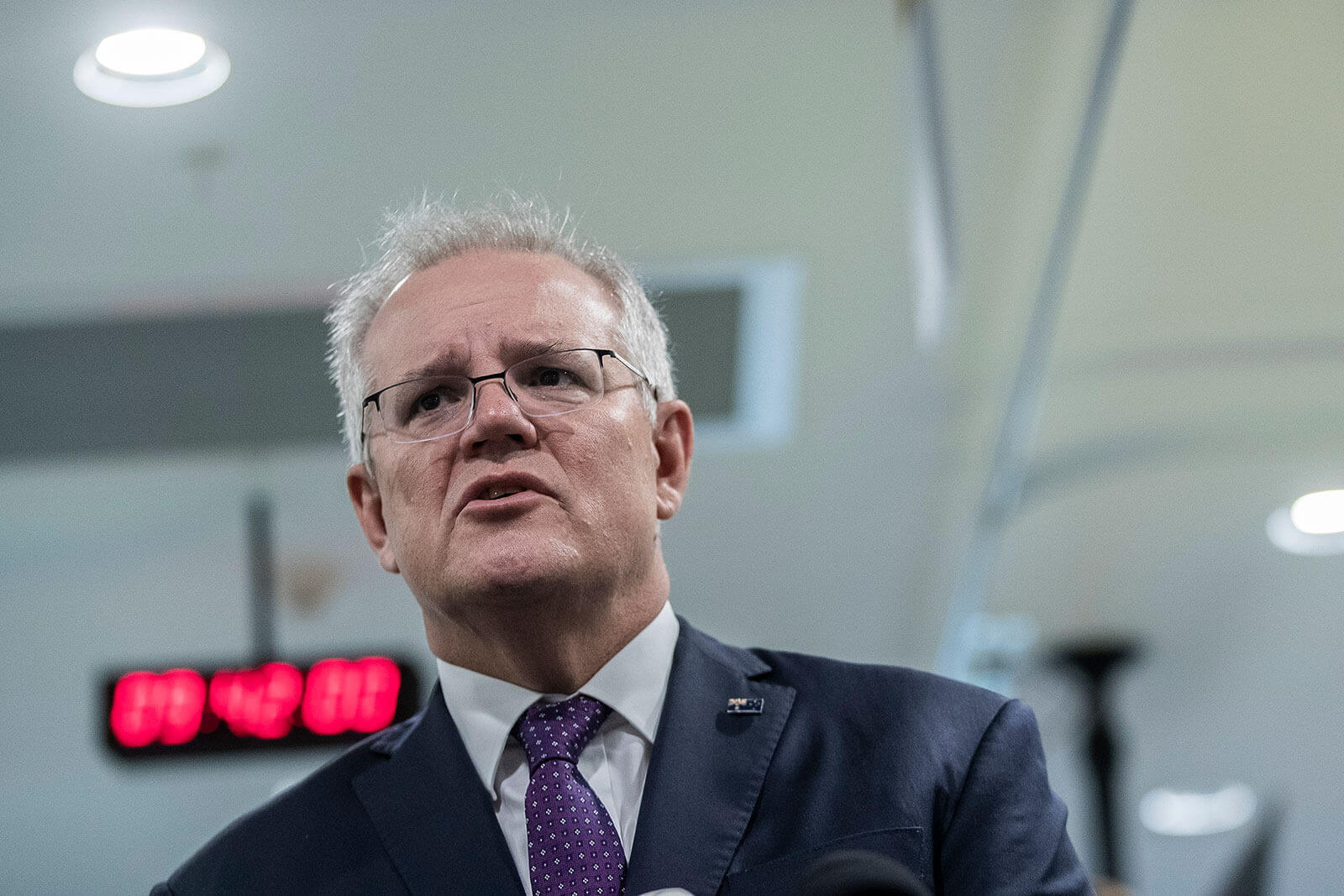Amid concerns that China is set to issue a ban on a host of Australian exports during a period of rapidly deteriorating bilateral trade and diplomatic relations, Australian Prime Minister Scott Morrison has sought to engender calm by saying that his administration is working closely with its Chinese counterparts to “get some clarity and some resolution”.
After reports emerged that $2 million worth of live Australian rock lobsters has yet to be unloaded in Shanghai (over alleged fears of contamination), Australian exporters of wine, timber, and grains are now fearing bans as well. Australia’s rock lobster trade amounted to $700 million last year, and 90% of this was delivered to China.
China’s customs agency recently banned timber imports from Queensland after finding a bark beetle in one of the shipments. Likewise, Australian company Emerald Grain has been barred from exporting barley to China after weed seeds were supposedly found in their shipment. Australia’s biggest grain exporter, CBH, had already been suspended from exporting consignments to China in September for similar reasons.
Agriculture Minister David Littleproud said that the Morrison administration is engaging with “Chinese authorities to investigate and resolve these issues,” assuring that “Australia has strong regulatory controls that underpin the integrity and biosecurity of all products exported”.
Furthermore, Trade Minister Simon Birmingham remarked, “Continued uncertain and inconsistent messages from China are heightening risks.” Additionally, he called on China to honor Chinese President Xi Jinping’s comments at the International Import Expo this week, when he said that countries must work together to combat the adverse economic effects of the coronavirus pandemic.
Trade experts contend that China is using arbitrary reasons to damage the Australian economy. Australia recently became the first country outside the South China Sea region to voice its opposition against China’s territorial claims and construction of artificial islands in the area with the United Nations (UN). It said that China’s claims have “no legal basis” and are “inconsistent” with international law.
Simultaneously, PM Morrison and Foreign Minister Marise Payne have previously pushed for an independent investigation into the origins and spread of the coronavirus, and a review of China’s culpability and complicity. This has drawn the ire of China, which has used state media outlets like the Global Times to engage in dangerous rhetoric, such as describing Australia as a “giant kangaroo that serves as a dog of the US”.
It has also said threatened that supporting the US could result in a “fatal” blow to Australia’s economy, “given Australia’s high dependence on the Chinese economy”. However, China has not only issued threats, but also delivered on them.
China’s Ministry of Commerce (MOFCOM) has placed tariffs of up to 80% on Australian barley producers for dumping and launched an investigation into Australia’s wine industry for dumping as well.
Furthermore, a Bloomberg report suggests that China is considering stricter quality checks, anti-dumping probes, tariffs, and customs delays on a host of other Australian imports, including wine, dairy, seafood, oatmeal, and fruit. China also blacklisted four Australian slaughterhouses. Australian coal exports have also been subjected to increased trade barriers. In addition, China has threatened to “target substitutable agricultural products such as beef and wine”.
In recent weeks, Australian wheat, wool, lobster, coal, sugar, and copper ore have all been subjected to temporary bans under the guise of “coronavirus restrictions”. In fact, Australian coal exports to China fell by 90% last week when compared to the same time last year.
China accounts for 40% of Australia’s $3 billion wine trade. Likewise, 50% of Australian barley exports are shipped to China. Similar dependency is observed in the iron ore and coal industry, which both make up $120 billion of Australian exports to China, while copper exports to China amount to $3.4 billion.
Australian diplomats have also warned that China will seek to capitalize on increasing anti-China sentiment by labeling Australia as an “intolerant country”. In October, three Chinese Australians were asked to condemn the Chinese Communist Party (CCP) during a Senate Committee hearing, indicating the rising distrust and ill-treatment of Chinese diaspora in the country.
Against this tense backdrop, Morrison acknowledged that he is concerned by recent developments but reiterated his “respect” for the “comprehensive strategic partnership” Australia shares with China.
Australia Fears Imminent Chinese Ban on a Wide Range of Australian Exports
In recent weeks, Australian wheat, wool, lobster, coal, sugar, and copper ore have all been subjected to temporary bans under the guise of “coronavirus restrictions”.
November 6, 2020

IMAGE SOURCE: BROOK MITCHELL / GETTY IMAGESAustralian PM Scott Morrison
